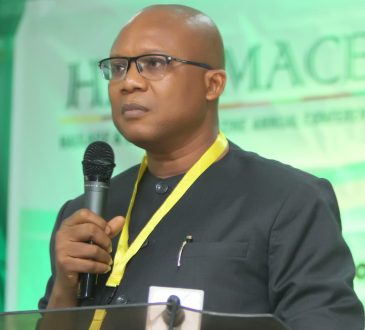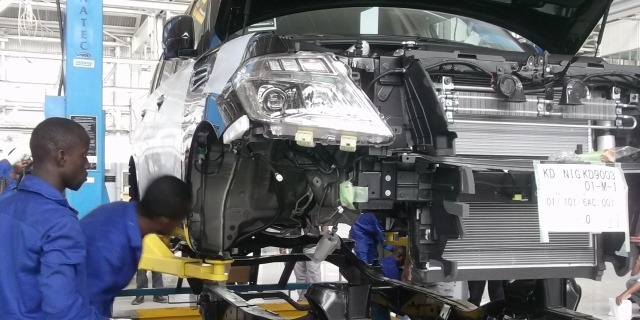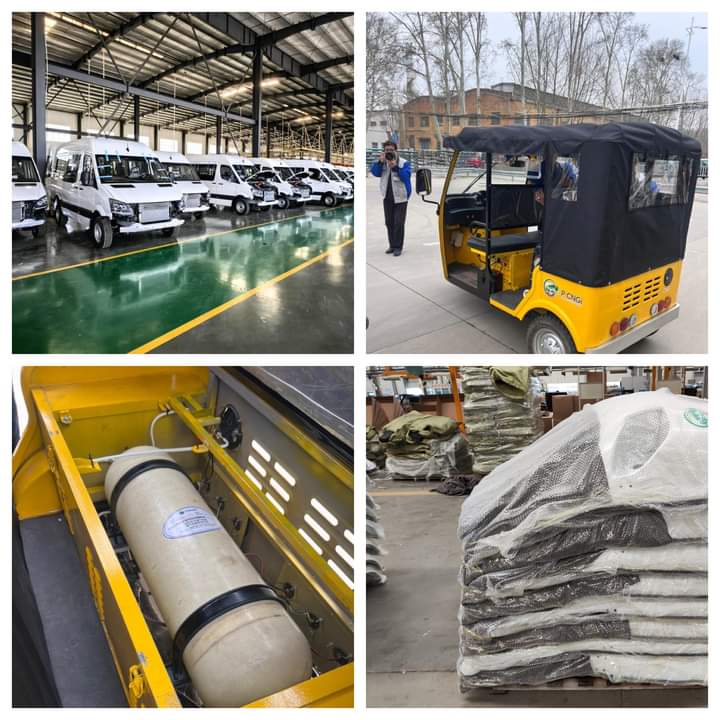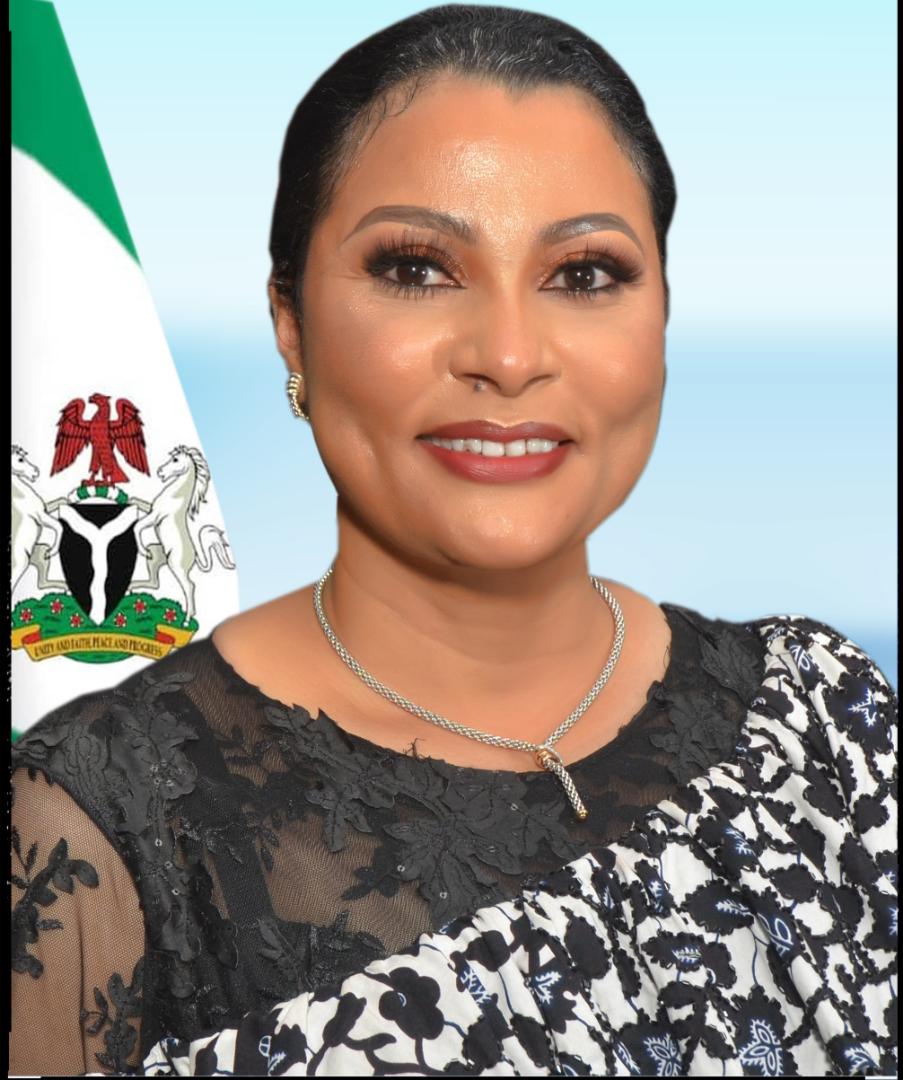Auto
Cartel frustrating Nigeria’s auto policy – NAMA Executive Director, Olaofe

Mr Remi Olaofe is the Executive Director, Nigerian Automotive Manufacturers Association (NAMA). He speaks with the Nigeria Auto Journal’s team on the auto policy, the impediments and how the nation can achieve a viable and sustainable auto industry
What is your view on the failure of President Buhari to sign the Auto Bill and returning it to the National Assembly for review?
I think the issue of Auto Bill has been over-flogged.
Some people don’t even know that we don’t have Auto Bill. This is because some elements of the Auto Bill are already being implemented. For example, it says we would license some assembly plants to encourage them to assemble vehicles in Nigeria; we would give them XYZ concessions. At the onset, they would bring in one Fully Built Unit (FBU) and they would be allowed to bring in this number of Semi Knocked Down (SKD) vehicles. It happened. We would tell Bank of Industry (BoI) to extend some facilities to some of them. Based on the National Automotive Industry Development Plan (NAIDP), such facilities were granted. There would be tax concessions; training facilities, emission centres and all those things.
The National Automotive Design and Development Council (NADDC) did that and those facilities were set up. The government would support the local assemblers and the Vice President, Prof Yemi Osinbajo, gave an Executive Order to support local assembly products. We are all in this country and we are aware that the implementation could be a big question. Of all these things that we have raised, you could have a challenge of implementation. The issue is what exactly do you want to achieve with auto policy? What is delaying our celebrating the auto policy, that is devoid of any disguise? The only thing that is delaying the real auto policy is lack of political power. There must be a commitment by the government. That commitment will only be derived from their appreciation of what that policy seeks to achieve. It does not augur well if we say that we are having an auto policy and all we are doing is just on paper. We must look at the macro implications of the auto policy. Is it just to make some people rich? We import vehicles and figures are being lost. Don’t let anybody deceive you with data because data must be derived from source. But the kind of figures we have from Customs, NADDC, assemblers, importers are quite different. That makes it very difficult for us to work with any figure. But the fact remains that the population of this country is not what anybody globally can take for granted. You can’t discuss Africa without Nigeria. If you now recognise Nigeria as important and we know that volume of business that we are talking about in this automobile industry, I believe it is enough for government to look at it from that perspective and put the necessary infrastructural framework in place for us to have this, which is what I believe auto policy should achieve. We are aware that President Jonathan approved this and the new government moved in. The issue was like that; it was already approved. Now, they said it would move from policy and that it has to be something with a legal backing. How long does it take to put a legal backing to anything? We have been on this. How many times do we even sit in the National Assembly, with the excuse of COVID-19? We don’t see it as a priority issue as far as I am concerned. The government of this country doesn’t see this auto policy as a thing of priority. We seem to continue to enjoy using our own scarce resources to support other economies to thrive, which is unfortunate. When you go into vehicle assembly, the stream of industries is unimaginable and you can’t just put a figure to it; from the person that makes the seat, mirror, steering, windscreen, tyres, brake pads, etc. There are many parts that you have in a single vehicle. What are we doing about it? Nothing. Last year, when the issue of Finance Bill came up, we met with the Minister of Industry, Trade and Investment, Otunba Niyi Adebayo, and he assured us that something would be done about it.
There are allegations that some people are frustrating the auto policy from being fully implemented. Do you share this view?
Absolutely; there a cartel. For every decision taken, there will always be pro and those against it. It favours some and it does not favour others. Some people don’t like it. I will say to you point blank that it is easier to trade than to manufacture. When you bring in your vehicle fully built, all you need is your showroom. You know the cost from the beginning in terms of clearing, duty, keeping it and the profit margin. You can’t do that in manufacturing because there, you have many things to contend with. For example, the personnel issue, raw materials, capital outlay, infrastructure and others. All these will go into assembling of a vehicle. But a vehicle that has already been assembled that you are just bringing in is different. So, will those people be happy with auto policy? The answer is capital no. Interestingly, these people are very strong; they have the wherewithal. Don’t forget that the people importing vehicles before are largely the ones going into vehicle assembly. So when they are having seven, eight, nine, ten lines of vehicles that they import, they are just using one line for the purpose of auto policy to assemble. And the assembly they are doing here is not the high-end of their products. It is the one that requires minimal resources to just test because nobody brings in money to any economy without being sure of the policy that supports and protects their investment. There is bound to be a cartel and we know the role they are playing.
Some auto assemblers are accused of short-changing government using the auto policy window by not paying the right duty on imported vehicles. How do you think this can be addressed?
The cartel we are talking about are not just those bringing in FBU. There is a different market, which is difficult to appraise. They are called the dealers of “Tokunbo” cars but when you see some so called Grade A Tokunbo, there is no difference between them and a brand new car; maybe because they have just done about 50 miles or 100 miles in America and they ship them to the country under various platforms. When those vehicles arrive in this country and when you open their bonnet, everything is intact. Nothing has been touched and some still have the nylon inside. These vehicles are classified as tokunbo cars but they are not. They are brand new vehicles. And that is the most difficult market. These people have guidelines that new vehicles must come into the country through company X. Now what they do in the US is that when they buy a new car, you drive it around to achieve a particular mileage. When you go to the history of that vehicle, you will notice that it was bought, parked and kept for some time and they ship it out. So they are called Tokunbo because it is not coming as brand new vehicles. But when they want to sell them, they don’t price it as Tokunbo. They price them as brand new vehicles because they know they are buying new cars. They are the people we are concerned with. There is no statistics. There is no barrier of entrance.
So we have a major issue as it relates to this category of people. What we could have done is for the government to be decisive. Government can decide to shut its borders to these vehicles. But in doing that, it must put certain infrastructure in place. The transport system must be okay and the assembly plants. You can give them specific models that they can manufacture or assemble. Let’s say 1.2-litre to 1.5-litre cars. And that is where the majority of our population is. How many Nigerians can afford a V8 vehicle? They will be very scanty. They want to have 1.2-litre to 1.6-litre cars. Let them produce these cars. Let the NADDC come up with a Nigerian design which we have asked for. Let them come up with a Nigerian design of vehicle specifying the kind of wheel, tyre and rim so that whoever that is manufacturing the equipment can have the full advantage of economy of scale.
What is your view on the recent slash in import duty on Tokunbo vehicles?
The issue of the Finance Bill is rather unfortunate. We did everything as NAMA working with the NADDC up to the minister’s level to let them know that these things would not address what they claim to address. We engaged a consultant to go out there and bring the take off of that Finance Bill. What was the cost of intra and inter transportation? What does it cost to take a cab from CMS to Orile or to Mile 2? We asked the cost now; in three months and six months after. What was the cost of travelling from here to Abuja and Onitsha prior to the Finance Bill? If the core objective of the Finance Bill is to lower the cost of transportation, has that really materialised? The answer is no. So, it is a failure. If that is the whole idea of reducing duty to bring those vehicles, then it has failed. There are so many variables that interplay for you to agree on what is the cost of transportation – the state of our roads; the cost spare parts; security in the system and the cost of fuelling the vehicles. So what has happened? The cost of transportation remains very high. The reduction in duty of vehicles was very political. It was not properly thought out and it was rushed into. What data informed the decision they took?
What input did NAMA make to the reviewed auto bill after it was returned to the NASS from the President?
Chairman of NAMA is on the board of the NADDC. We have other members representing spare parts and other sectors. When this came up, it gave us the opportunity to listen to some of our members. We tried to find out their agitations and the shortcomings in the earlier arrangement. It was not so significant because when you go through that Auto Bill, there are minimal amendments coming into it; just the addition of some operators not properly captured before like the three-wheelers. We participated in the first draft of the bill and in the review. We were adequately represented via the NADDC platform on the modification that took place.
Is Nigerian auto industry truly ready for the opportunities in the AfCFTA?
We are currently going to be at a loss because we are not ready for it. When it was about to be signed, we suggested through the Manufacturers Association of Nigeria that we should have it on a segment basis. It was expected that some would start immediately and you would give some people two to three years to join. We pushed that time to allow automobile come in, in the second phase. What we had in mind was that the second phase would give us enough room. Unfortunately, we have been static. That would have given us enough room to move from SKD to CKD and let us provide requisite infrastructure like an industrial zone where we can have free trade zone; where we can have automobiles assembled; bring in the OEMs because they are not in yet. So, all these are not going to be to our advantage. In Ghana, people keep saying it. Nigeria is the source of auto bill in Ghana. Auto bill written here, packaged here was taken away by somebody and was taken by a country that knows what it wants to do. And it is already implemented. I know a number of major players in the automobile assembly in this country that are supposed to be in Nigeria but are now in Ghana. So we are creating an automobile hub in Ghana. And Ghana will now assemble vehicles and be shipping to Nigeria.
Nothing will go well without us coming together. A house that is divided cannot stand. The Nigerian auto assemblers need to come together. NAMA is supposed to be the platform to achieve that. But we understand that majority of them prefer to go their way. So, when everybody chooses to go individually to fight a course, they end up being taken advantage of. We are not speaking the same language. The voice lacks unity. And when the voice lacks unity, it will equally lack effectiveness. This is the core challenge we are facing. I sincerely pray that NAMA will come up to this realisation to occupy its rightful place and the members will see the need for them to play what they are supposed to play towards getting these things done.
-Nigeria Auto Journal, 2021.
Auto
African automakers, minister, NADDC DG for June 27 Nigeria industry summit

African automakers, minister, NADDC DG for June 27 Nigeria industry summit
A delegation of the African Association of Automotive Manufacturers (AAAM) from South Africa is expected in Nigeria on June 27 this year to attend the maiden edition of the Nigeria Auto Industry Summit (NAISU).
The team will be joined by the Nigeria Association of Automotive Manufacturers (NAMA) team and other leading stakeholders to brainstorm on the sector’s development in the country and by extension Africa.
The organisers of the event, Nigeria Auto Journalists Association (NAJA), disclosed this in a statement, adding that it would be organised in partnership with the National Automotive Design and Development Council (NADDC).
Scheduled to hold at Radisson Hotel, Ikeja, Lagos, on Thursday, June 27th, 2024, the summit is envisioned as an annual flagship event of the country’s automotive industry to rally all stakeholders together to explore the great potential in the automotive sector for national development.
It said the maiden edition of the event would be declared open by the Minister of Industries, Trade and investment, Dr Doris Uzoka-Anite, under the theme ‘Reviving Nigeria’s Economy through the Automotive Sector’ .
It would have the NADDC Director General, Mr. Joseph Osannipin, as the chief host, it stated.
Commenting on the importance of the summit for the development of the country’s automotive sector, Chairman, organizing committee of NAISU, Femi Owoeye, said, “Initiating this summit is vital, especially at this moment in history, when Nigeria is struggling to map its way out of the prevailing global economic despair.
“Being one of the drivers of the global economy, the automobile industry, if given the necessary impetus in Nigeria, is capable of transforming the country to an automotive manufacturing hub in Africa.
“To this end, Nigeria Auto Industry Summit shall annually produce significant information that would help the government to make it happen.”
On his part, Chairman of NAJA, Mike Ochonma, said, “Significantly, the summit shall bridge the information and communication gap between the nation’s auto industry stakeholders and relevant government agencies.
“Moreover, annually, the summit shall give a single and united voice for the auto industry leaders to set developmental agenda aimed at kick-starting and driving relevant government policies towards a sustainable development of the automotive industry in Nigeria and ultimately position the country as a frontline beneficiary of the African Free Trade Agreement Area.”
Auto
FG to roll out 200 CNG buses, 2,500 tricycles next month

FG to roll out 200 CNG buses, 2,500 tricycles next month
- Targets one million automobiles
The Federal Government says it will unveil its first set of Compressed Natural Gas (CNG) vehicles and tricycles for mass transit next month (May 2024), as part of activities to mark President Bola Tinubu’s one year in office.
Special Adviser to the President on Information and Strategy, Bayo Onanuga, in a statement on Sunday said 200 buses and 2,500 tricycles powered by CNG would be unveiled.
He said the buses and tricycles would be rolled out with a set target of one million CNG-powered automobiles by 2027.
He said the committee led by Michael Oluwagbemi was set to deliver cheaper, safer and more climate-friendly energy vehicles.
Onanuga said the committee had fulfilled some foundational reforms to enable the new CNG and electric vehicles to deliver the future Tinubu promised.
He added that all was ready for delivery of the first set of critical assets for deployment and launch of the vehicles ahead of the first anniversary of the Tinubu administration on May 29.
Onanuga also said, “In collaboration with the private sector, the PCNGI is set to deliver 100 conversion workshops and 60 refuelling sites spread across 18 states before the end of this year.”
The Federal Government provided N100 billion, as part of the N500 billion palliative budget, to purchase 5,500 CNG vehicles, being part of the many intervention programmes to cushion the effect of increase in petrol pump price on the masses.
This included buses and tricycles, 100 electric buses and over 20,000 CNG conversion kits, with the development of CNG refilling stations and electric charging stations.
Onanuga said with necessary tax and duty waivers approved by Tinubu in December 2023, the private sector partners in the Presidential CNG Initiative (PCNGI) had responded with over $50 million investments in refuelling stations and conversion centres
He stated, “Also, a safety policy document on 80 standards and regulations that must be strictly adhered to by operators has been developed and approved to ensure CNG conversions are done safely and reliably.
“The deployment of CNG buses and tricycles and the vision to get at least one million natural gas propelled vehicles on our roads by 2027 will mark a major energy transition in our country’s transportation industry.
Onanuga also said, “Four plants owned by JET, Mikano, Mojo, and Brilliant EV located in various parts of the country are involved in the assembly of the Semi Knocked Down (SKD) components of the CNG buses.
“JET, which has received the SKD parts, is coupling the buses in Lagos and is working towards delivering 200 units before the first anniversary of the Tinubu administration.
“Brilliant EV will assemble electric vehicles. It is awaiting the SKD parts, which will arrive in due course. The electric vehicles it will produce are meant for states, such as Kano and Borno, which do not have access to CNG for now.
“They will also be available in key Nigerian cities and university campuses.
“It must be noted that soon to be completed gas pipeline projects initiated by the Buhari administration and being completed by NNPCL (the AKK Pipeline) will take gas into the hinterlands of North-East and North-West where there is current paucity.”
He said over 600 buses were targeted for production in the first phase this year while a new plant on the Lagos-Ibadan Expressway would assemble thousands of tricycles.
“The SKD parts manufactured by the Chinese company LUOJIA in partnership with its local partner to support the consortium of local suppliers of CNG tricycles are set for shipment to Nigeria and expected to arrive early in May. About 2,500 of the tricycles will be ready before May 29, 2024.
“Thousands of conversion kits for petrol powered buses and taxis that want to migrate to CNG are also ready with CNG cylinders.
“The Federal government intends to provide them at subsidised rates, especially to commercial vehicle drivers to bring down the cost of public transportation.”
As part of private sector collaboration, NIPCO and BOVAS are involved in offering refilling services for the CNG vehicles and also serving as conversion centres.
NIPCO is setting up 32 stations nationwide to offer the services. The company has completed the set-up of four of the CNG stations.
“Likewise, BOVAS is setting up eight stations in Ibadan, two each in Ekiti, Abuja and four in Ilorin.
“MRS is also involved. It is making efforts to announce where its refilling stations and conversion centres will be,” Onanuga added.
He also said NNPC Limited, which had launched an on-and-off CNG initiative in the past, was joining the new initiative and expected to announce the locations for CNG refilling and CNG conversion centres nationwide.
The statement said PCNGI was working with 22 other agency-partners, including the Standards Organisation of Nigeria (SON) and National Automotive Design and Development Council, to deliver 80 Natural Gas Vehicle Conversion and Associated Appliances Standards for the country.
He added that the vision of the President to deliver one million gas vehicles could not be possible without the private sector, including the RTEAN, NURTW and players in the downstream sector of the transportation chain and financiers.
Auto
We expect massive roll-outs of Nigeria-made cars by December 2024 – Minister

We expect massive roll-outs of Nigeria-made cars by December 2024 – Minister
Nigeria now has the capacity and materials to manufacture made-in-Nigeria cars for local use and export, the Federal Government has said.
Minister of Industry, Trade and Investment, Dr Doris Uzoka-Anite, stated this at the Automotive Component Manufacturers meeting in Abuja.
She said local manufacturers should be be held responsible if they fail to deliver massively Nigeria-made cars at the end of this year.
The minister said notwithstanding challenges facing the nation’s automobile industry, with the enabling environment being provided by the government, manufacturers should be held responsible if the cars are not rolling out by December 2024.
Newstrends reports a total of 37 firms were licensed automobile manufacturers/assemblers in Nigeria as of March 2023.
This figure is contained in the NADDC Updated List of the Accredited Locally Manufactured Brand in Nigeria.
Nigeria is said to currently produce less than 10 per cent of the 400,000 vehicles being used in the country.
The minister said, “As far as we are concerned, the auto industry is now set to go. We are counting on all stakeholders to make that happen.
“If we do not produce made-in-Nigeria cars before the end of this year (December), it will be your fault, because I am sitting down here giving you all the assurances that this administration has created the enabling environment to make sure that the auto policy kicks off.”
A statement by the ministry’s Director of Information and Public Relations, Adebayo Thomas, said the minister emphasised the need for collaboration among manufacturers, dealers, regulatory bodies and other players in the automobile industry.
She stressed that by working together, they could address challenges, streamline processes and drive innovation.
Even as she emphasised the need for local content, she urged stakeholders to maintain high-quality standards in vehicle manufacturing, safety features, emissions control and after-sale services.
This, she said, would boost consumer confidence and attract investment.

-

 Education4 days ago
Education4 days agoWhy we charge N42m fees for primary school pupils — Charterhouse Lagos
-

 News6 days ago
News6 days agoUpdated: More trouble for Yahaya Bello as Immigration places him on watch list
-

 Auto4 days ago
Auto4 days agoWe expect massive roll-outs of Nigeria-made cars by December 2024 – Minister
-

 International6 days ago
International6 days agoUpdated: Tragedy hits Kenya, Defence chief, nine others die in military helicopter crash
-

 metro4 days ago
metro4 days agoJUST IN : Borrow pit collapses, kills seven Qur’anic school pupils
-

 News4 days ago
News4 days agoWe’re not part of Yoruba Nation agitation, says MKO Abiola family
-

 metro2 days ago
metro2 days agoHow gunmen killed Babcock university lecturer, abducted two – Police
-

 News7 days ago
News7 days agoYahaya Bello: EFCC warns against obstruction of operations






















